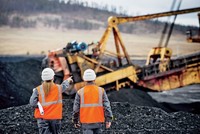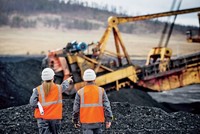Advertisement
Grab your lab coat. Let's get started
Welcome!
Welcome!
Create an account below to get 6 C&EN articles per month, receive newsletters and more - all free.
It seems this is your first time logging in online. Please enter the following information to continue.
As an ACS member you automatically get access to this site. All we need is few more details to create your reading experience.
Not you? Sign in with a different account.
Not you? Sign in with a different account.
ERROR 1
ERROR 1
ERROR 2
ERROR 2
ERROR 2
ERROR 2
ERROR 2
Password and Confirm password must match.
If you have an ACS member number, please enter it here so we can link this account to your membership. (optional)
ERROR 2
ACS values your privacy. By submitting your information, you are gaining access to C&EN and subscribing to our weekly newsletter. We use the information you provide to make your reading experience better, and we will never sell your data to third party members.
Environment
Living With Limits
by Rudy Baum,
February 9, 2009
| A version of this story appeared in
Volume 87, Issue 6
THE GLOBAL financial crisis and recession is providing those who do not want to address global climate change another excuse for inaction. It is a familiar refrain. It is also a tired one.
It seems that whenever a concrete proposal that would limit the amount of CO2 being poured into the atmosphere is floated—whether it's California's effort to limit tailpipe emissions from cars or the Supreme Court ruling that the Environmental Protection Agency should regulate CO2 as a pollutant under the Clean Air Act—someone is sure to respond, "We just can't afford to do that. It will put us at an economic disadvantage."
Now it is the recession, and comments sound like these: "The automobile industry is already battered. You can't ask them to improve average fleet mileage during the recession." And, "We can't add to the cost of electricity by imposing a carbon tax on fossil fuels." And, "We can't impose a gasoline tax. People just can't afford it in these economic conditions."
Recently, we learned that CO2 is unique among greenhouse gases in that climate change as a result of CO2 emissions is largely irreversible on a 1,000-year time scale (C&EN, Feb. 2, page 11). As lead author Susan Solomon, a senior scientist at the National Oceanic & Atmospheric Administration, and her coworkers write in their PNAS paper, "Among illustrative irreversible impacts that should be expected if atmospheric carbon dioxide concentrations increase from current levels near 385 parts per million by volume (ppmv) to a peak of 450–600 ppmv over the coming century are irreversible dry-season rainfall reductions in several regions comparable to those of the 'dust bowl' era and inexorable sea level rise." According to the scientists, thermal expansion of the ocean alone will cause sea levels to rise by 1 to 3 feet.
The same week that Solomon's PNAS paper was published, 155 ocean scientists from 26 nations released the "Monaco Declaration," which resulted from the 2nd International Symposium on the Ocean in a High-CO2 World, held in October 2008. Burning fossil fuels, it turns out, isn't just trashing the atmospheric commons, it's trashing the oceanic commons, too.
According to the declaration, ocean acidification is under way, it is already detectable—the pH of ocean surface waters has dropped from 8.16 to 8.05 since the late 1980s, according to Scripps Institution of Oceanography—and it is accelerating. Severe damages to marine organisms is imminent because of acidification. It will have socioeconomic impacts, and although acidification is rapid, recovery will be very slow.
"By the end of this century, if atmospheric CO2 is not stabilized, the level of ocean acidity could increase to three times the preindustrial level. Recovery from this large, rapid, human-induced perturbation will require thousands of years for the Earth system to reestablish ocean chemical conditions that even partially resemble those found today; hundreds of thousands to millions of years will be required for coral reefs to return based on the past record of natural coral-reef extinction events," the declaration states.
This is an emergency, folks. We have to begin the painful and difficult process of ceasing to treat the atmosphere and the oceans as a carbon dioxide sewer if we want to preserve any semblance of the world we live in today for future generations.
And here's the hard truth: To do it, we're going to have to live with less, and we are going to have to accept some limits on our endless acquisition of goods because we cannot afford all the material stuff we produce and consume. So long as we treat the atmosphere and the oceans as a carbon dioxide sewer, we are not paying the full cost of the material goods we consume. The only way that will change is through imposition of a carbon tax or a CO2 cap-and-trade system that will internalize the cost of burning fossil fuels into the products we consume. That is not going to be painless.
I don't know how to do that globally, but I know that it has to be done. And done soon.
Thanks for reading.
Views expressed on this page are those of the author and not necessarily those of ACS.




Join the conversation
Contact the reporter
Submit a Letter to the Editor for publication
Engage with us on Twitter